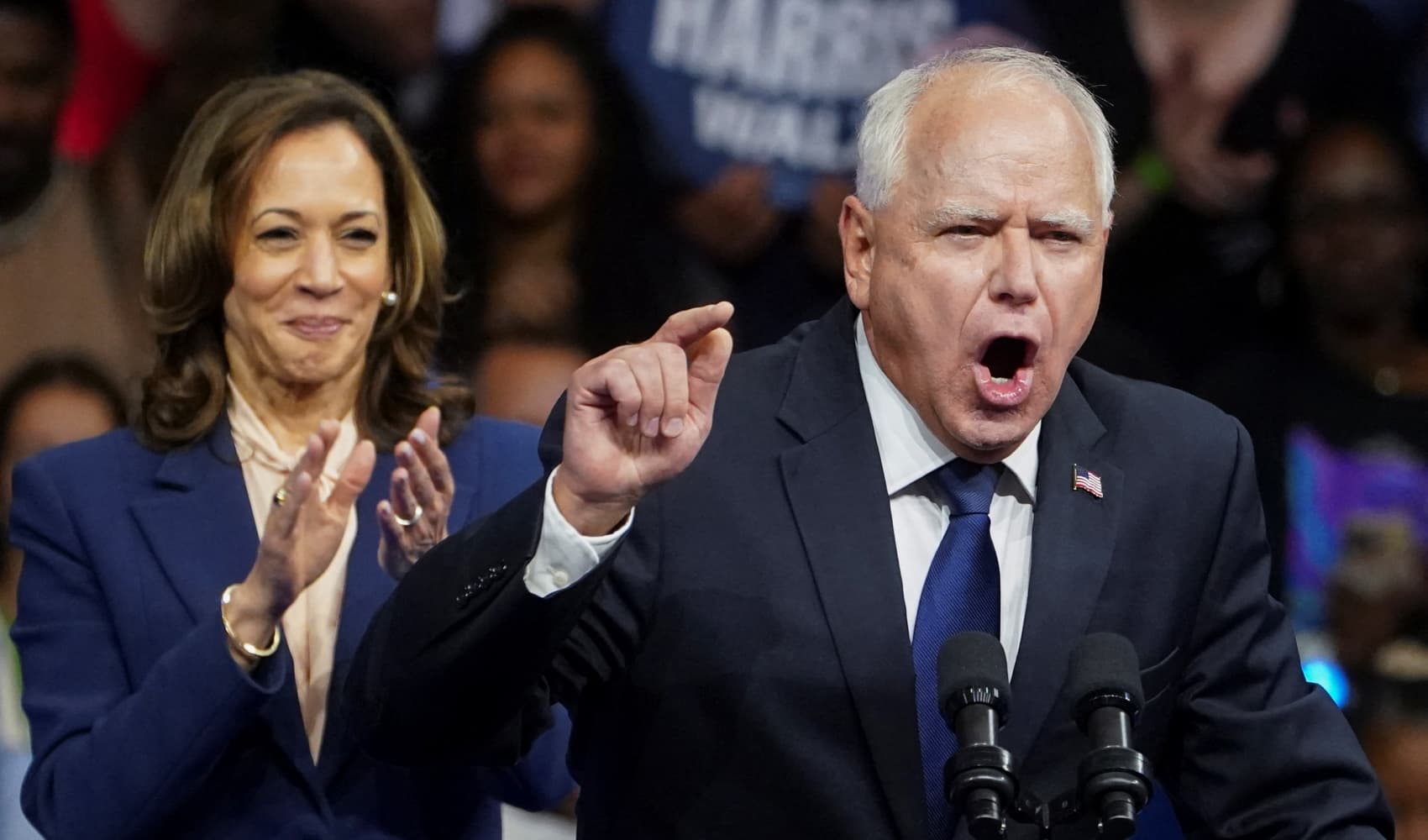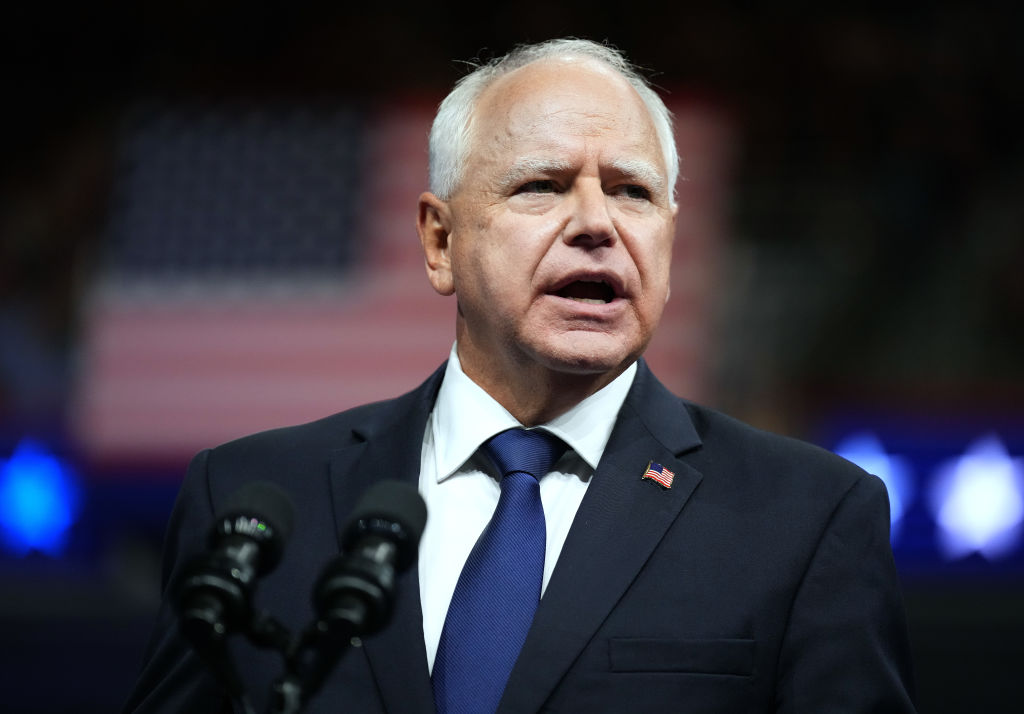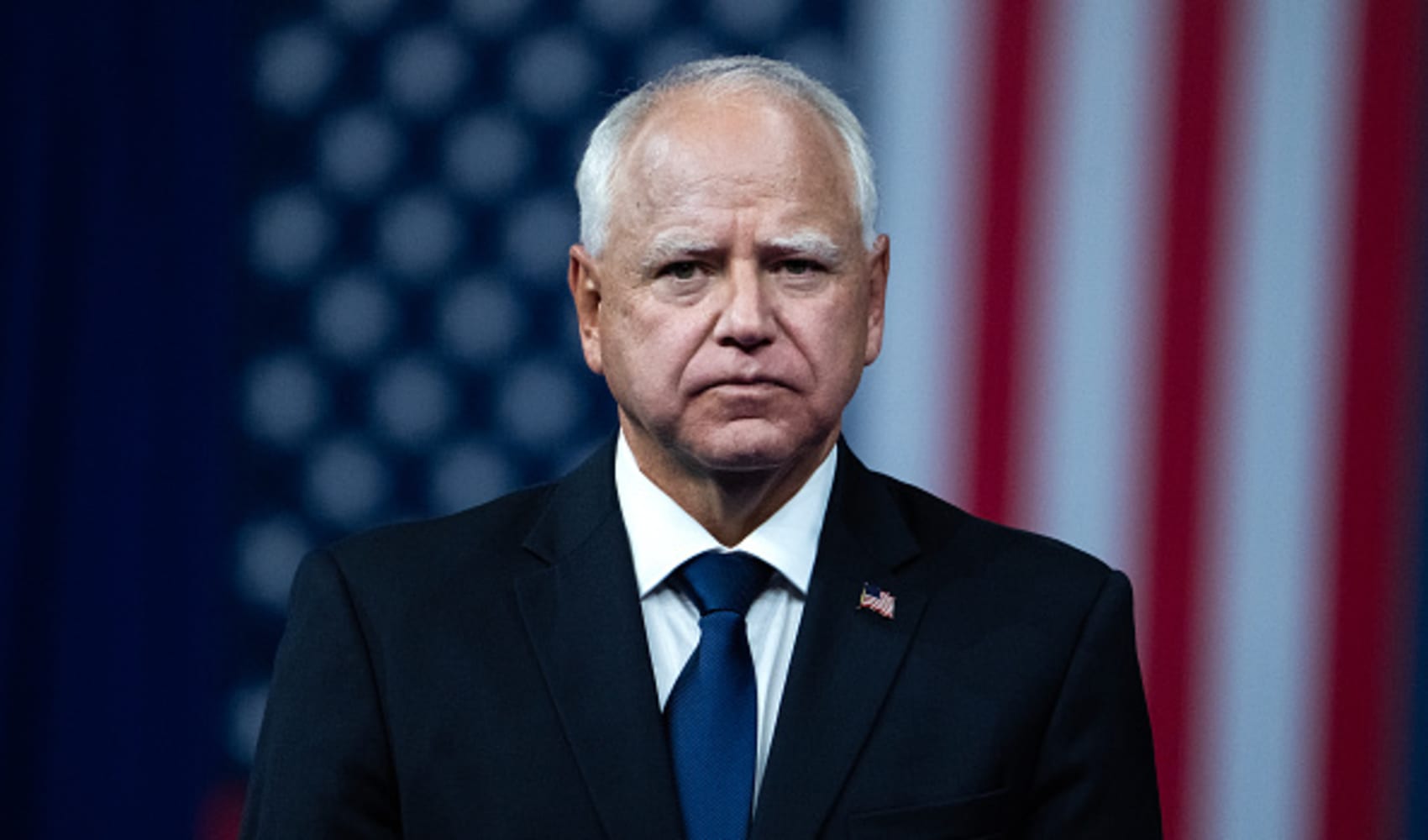
Although their population is small compared to other states, Latinos in Minnesota said Tim Walz, Vice President Kamala Harris' pick for running mate, has not overlooked them as governor.
Walz’s supporters say the Democratic governor made education and health care more accessible in the state and the workplace more accommodating for families. They also noted that he was the first governor to attend a major Latino cultural event in the state’s capital, St. Paul.
Walz’s relationship with Latinos in the state will be critical when he cites his Midwest experience while campaigning in the battleground states of Arizona, where about of a third of the population is Latino; Nevada (almost 29%); and in other swing states like Pennsylvania and Georgia, where Latino turnout could help decide a tight race.
About 38% of Minnesota Latinos who voted in 2020 backed Donald Trump, according to NBC News’ exit poll.
Get top local stories in San Diego delivered to you every morning. Sign up for NBC San Diego's News Headlines newsletter.
Emilia Gonzalez Avalos, executive director of Unidos MN, a group that advocates for immigrants, education and climate justice, said Walz’s record reflects that he regards the state's Latinos, including those in the immigrant community, “as another constituency within working families.”
About 6.1% of Minnesota’s population is Latino and about 98,000 Latinos voted in 2020, according to the UnidosUS Hispanic Electorate Data Hub. Biden won the state in 2020 by 233,012 votes. The majority of Minnesota’s Latinos — about 4 in 5 — are U.S. citizens, with 68% U.S. born and 11% naturalized citizens, according to a 2021 state government report.
The state's Latino population is largely made up of people of Mexican descent, some whose ancestors first settled in the state in the mid-1900s as migrant workers in the state’s beet fields.
Other Latino groups have followed, including people with roots in Puerto Rico, El Salvador, Guatemala, Ecuador, Colombia and increasingly Venezuela.
Policies that aren't 'exclusionary'
Last year, Walz signed legislation creating a program to cover state college tuition and fees for Minnesota residents whose families' adjusted gross income is less than $80,000 a year. The assistance kicks in to cover what is not paid for by other grants, such as federal financial aid, and scholarships.
Since 2013, the state has offered in-state tuition and financial assistance to those with temporary legal status and those not legally here. A policy change improved how assistance is calculated for students who don't get federal financial aid. The change provided more state aid to those who lack legal immigration status, attend certain trade schools, such as barber college, or have lower course loads than required for federal aid.
A spokesman for the Minnesota Office of Higher Education said the change was a decision made within the department. But Gonzalez said efforts to get that change failed before Walz took office.
“Most of the Latino students that we hear from in the state say they choose other options than college because of affordability,” Gonzalez said, regarding the importance of the measures.
Paid family leave is available to anyone, and those who pay federal taxes with an individual tax ID number regardless of immigration status are eligible for child tax credits, Gonzalez said.
And state residents without legal status can enroll in Minnesota Care this November and begin getting those health benefits in 2025, she said.
“A lot of his regular, working families policies don’t have exclusionary clauses — he invested in free and reduced lunches, we passed free state colleges for the families that need it the most,” Gonzalez said.
Rep. María Isa Peréz-Vega, a state House Democrat, had to scrap a planned news conference with the governor in her district on the newly formed Children’s Cabinet, an agency focused on children and families, when Walz’s selection became official Tuesday.
Peréz-Vega, who is Puerto Rican, represents west St. Paul, the first Latino area in the state.
A law signed by Walz in 2020 to cap insulin rates at $35 a month did not include undocumented people. Peréz-Vega said she worked with Walz to help get that cap extended to those without legal immigration status who pay federal taxes.
“He knows how to address these issues because he comes from Mankato. Mankato is a very, very Republican conservative town. But the demographics has changed where you see two generations of Latinos there, and east African and southeast Asian groups,” she said.
Walz has moved to the national scene about six months after signing the so-called Driver’s Licenses for All legislation in the state. The law made it possible for people without permanent legal status in the U.S., including undocumented residents, to get driver’s licenses.
The law has drawn criticism from immigration hard-liners, who argue it encourages illegal immigration. Supporters have argued the changes help the state’s overall economy.
John Pacheco, president of the Latino Chamber of Commerce of Minnesota, said the expanded driver’s license access was seen as helpful to agriculture and businesses who need workers who can legally drive.
Like other voters, Latinos have ranked pocketbook issues as their leading concern this year. Carlos Odio, a pollster with the Democratic firm Equis Research, has said immigration policies are not the litmus test they once were for Latino voters, which gave Democrats an advantage in past elections.
But immigration framing and strategy still can affect perceptions for some voters. Odio has said Latino voters generally reject the idea of mass deportations — which Trump and his running mate J.D. Vance have championed — even if they support more order at the border.
More startups — and criticism of taxes
Pacheco credited Walz’s administration with providing grants to the chamber to assist Latino business startups around the state.
“We have a specific Latino legislative liaison, and we meet on a monthly basis with his staff and we look at issues coming up. … We have about seven or eight Latino organizations, we put our agenda together, send it to the governor and lists of appointments together. We do quite a bit with his staff,” Pacheco said.
Walz will have to assure voters that the policies he's championed don’t come at too high a cost, as Republicans assert.
Rick Aguilar, chair of the Hispanic Republican Assembly of Minnesota, said the GOP is finding support among Latino entrepreneurs who “got hit up with Walz administration taxes.”
Sales taxes are hitting Latino businesses hard, Aguilar said. Those owners may support the expanded driver’s license but are looking at their bottom line and seeing that because of inflation and taxes they have to charge more for a can of pozole (hominy) than the local Walmart, he said.
The costs for sick leave and free meals to children “falls on the business owner,” he said.
In a more basic gesture, Gonzalez said Walz was the first governor of Minnesota to attend the grassroots celebration of the Día del Grito, the traditional marking of the cry for freedom that triggered Mexico’s War of Independence.
Other governors had attended the celebration held by the consulate, but Walz accepted an invitation to attend the event at Mercado Central, an immigrant-owned market featuring many Latino businesses, foods and goods, on St. Paul’s Lake Street, in the heart of the Latino community, Gonzalez said.
Walz has met with UnidosMN and others in the Lake Street community to help business owners and groups “troubleshoot about investment, hears about needs,” and he has shown concern about racial inequality gaps, she said.
“He has been present at Lake Street. He has been a present governor for many Latinos,” Gonzalez said.
For more from NBC Latino, sign up for our weekly newsletter.
This story first appeared on NBCNews.com. More from NBC News:




